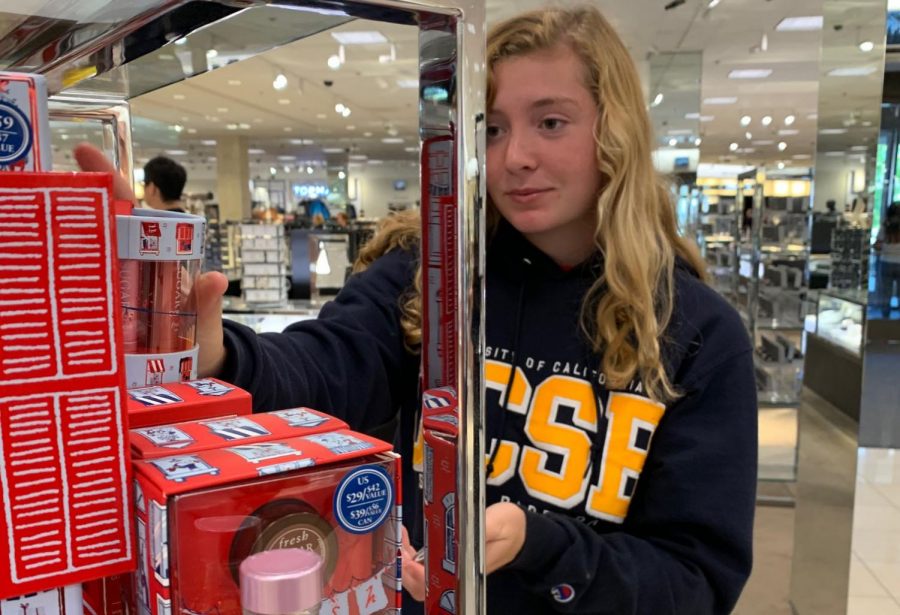Christmas Consumerism Creeping into Summer
October 24, 2019
As October rolls around, I can’t help but notice that department store commencements of the commercial Christmas season are becoming more socially acceptable. It seems that Black Friday-Cyber Monday sales are a blight on the nation’s entire fall-winter season.
By the time December 1st hits, I am already sick of the holiday online markdowns. I haven’t even begun my advent calendar countdown or written a gift list, which leaves me frustrated as I witness the corruption of my once-favorite holiday.
This stems, naturally, from the corporate extortion of the Christmas season.
Don’t get me wrong, I have always been a great aficionado of the Christmas season: its traditions, decorations, and shopping are a bright light at the end of the school year’s dark tunnel. But the prolonging of the Christmas season by money grubbing corporations, which has transformed it into a 3-month sensation, minimizes the true magic of the holiday.
Known amongst economists as the “Christmas Creep,” the season of giving (or rather, spending) continues to infringe ever further on months preceding December, overshadowing the consumption of Halloween and Thanksgiving.
These stores are motivated by increasing their profit margins rather than cultivating a sense of Christmas spirit, which is to be expected of today’s money-centric, materialistic society. However, if this hijacking of fall continues, the very holiday itself will be lost in its lengthy build up.
Email spam for “The Perfect Gift for Him” from Amazon or alerts about the return of Starbuck’s Peppermint Hot Chocolate when Halloween hasn’t even had its time to shine spoils the fun.
I do not wish to bah humbug anyone’s spirits, but there are 12 days of Christmas for a reason.
The Christmas Creep results in extorting a holiday that, at its core, is about faith, family, and generosity, into a mechanic, capitalist venture. Companies and stores who further the creeping of Christmas consumption further the disassociation of the holiday with these core values.
According to the Pew Research Center, 9 in 10 Americans celebrate Christmas, but a measly half of these people consider the holiday a religious affair; they instead see it as a holiday solely for giving gifts. A result of the Christmas Creep and the growth of a consumer culture with each holiday season, I fear that Christmas celebrators, 96% of those who identify as Christians, will accept this complete surrender to capitalism.
Replacing religious celebrations and family get-togethers with gluttony and materialism will only continue so long as people feed the wallets of CEOs who force eggnog and fruitcake down our throats in mid-September.
For those who hope to remain enthusiastic about Christmas when it actually arrives, I advise caution. Pace yourselves people. It’s October.




